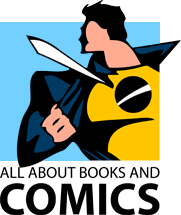Steve Gerber died.
Boy, is that hard to type; back in the ’70s, as I went through high school and college, I wanted more than anything to be a comic book writer, and Gerber was the guy I wanted to be. He’d been part of the second wave of comics writers, the first fanzine-makers and readers of the early-’60s Marvel renaissance who’d transitioned into pros, and he brought a literary talent, a grown-up way with words and subject matter that still allowed for superhero fun and sly humor, that made the comics medium’s potential seem endlessly entertaining. For a while, it seemed like he held the best job in the universe.
And now he’s gone. No obituary here — you can find tributes and obits at Mark Evanier’s site (www.newsfromme.com), along with Tom Spurgeon’s (www.comicsreporter.com) and Heidi MacDonald’s (pwbeat.publishersweekly.com/blog/), and they’re sure to be just the tip of the iceberg; to anyone reading comics during the Bronze Age, he was an inspiration, his influence broad and deep. There was Man-Thing, where he and Mike Ploog crafted gemlike, humanistic short stories about dead clowns and old hound dogs and blind girls with psychedelic candles. There was The Defenders, where his rollicking, year-long Nighthawk’s Brain/Bozos epic (the “Bozos” bit inspired by the Firesign Theater) worked both as fun individual superhero stories and as one long intertwined graphic novel, one of the first extended stories ever offered in a mainstream book.
And then, there was Howard. The Duck, conceived as a throwaway character in Man-Thing, who somehow caught the cultural zeitgeist, propelled by Gerber’s deft characterization of him as both a cynical outsider and a grudging innocent, equal parts Groucho Marx and… well, Steve Gerber. The first few issues of the comic stumble a bit, searching for the proper balance between slapstick and true satire, but by Howard’s run for the presidency in issue #8, through to Gerber’s last issue in #27 (Marvel having canned him from his creation for daring to argue that he might have some ownership rights to it), it’s a ground-blazing, genre-bending thrill ride.
Gerber did lots of other comics work later (Hard Time, a DC title a few years ago about a kid with mysterious powers who’s also a prison lifer, was his longest sustained recent work, and he was working on the Dr. Fate series in Countdown to Mystery even while in the hospital the last few weeks), and his influence on creators’ rights is worth a post by itself, but nostalgia’s a powerful thing: those earlier works, when he was in the first bloom of his talent and you could just feel his storytelling ability growing, issue after issue, are the ones that resonate now. Younger readers will miss the sheer newness that shone from the books back then: today’s writers, standing on Gerber’s shoulders, use bits of his tone and technique as a matter of course. Still, we’re lucky: because of creators like him, comics are an accepted storytelling medium, and we can pull down our Essential Howard or Essential Man-Thing or Essential Defenders, and watch him, with Gene Colan and Ploog and Sal Buscema, weave his spell. He’s gone; the stories remain; as epitaphs go, that one will have to do.
Phil Mateer



